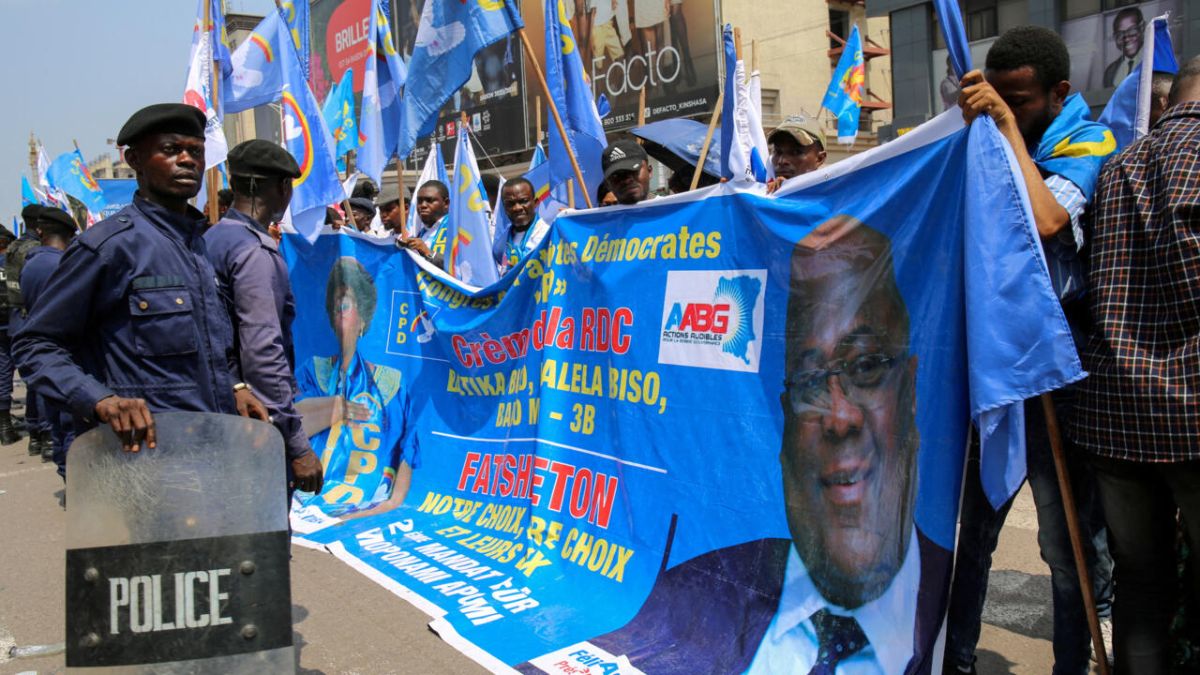In Congo’s Lubumbashi a gleaming $25 million shopping mall stands as a symbol of corruption, built with funds meant for a national ID system but instead benefiting a small elite tied to former President Joseph Kabila, a joint investigation by Bloomberg News and Lighthouse Reports reveals.
Congo which is regarded as one of the 10 poorest countries in the world has already struggled hard to deal with existing problems including hunger, unemployment and rampant political violence. And now in the absence of a proper national identity system, the day-to-day life has become harder in accessing basic services such as opening bank accounts and receiving money from abroad etc.
The situation in the country has become so bad that even the Congolese people started feeling as if they were foreigners in their land, the World Bank said in a report, adding that no one in the country can even guess the actual population and the government has no record of who can vote, who is eligible to pay tax and who gets access to the benefits of a government-run scheme.
“It’s impossible to govern a country if you don’t know its population,” Ithiel Bathumike, a researcher on biometric IDs and elections for Ebuteli, a Kinshasa-based research center supported by New York University told Bloomberg. “How can you levy property tax if you don’t know who owns the land?”
A $1.2 billion contract between the Congolese government and Idemia, a French biometrics company, has raised concerns among external partners and government watchdogs, the report said, adding that the deal, which aims to develop a national ID system, has been criticised for its exorbitant price tag and unorthodox financing structure.
A confidential memorandum from the National Office for Population Identification (ONIP) highlighted “worrying elements” including “flagrant overpricing” and the risk of the contract becoming an “enormous scam.”
Impact Shorts
More ShortsThe Congolese government has promised to develop a national ID program for over two decades. When President Felix Tshisekedi took office in 2019, he pursued his plans for a national ID system. However, the proposed cost of the project has reached $1.2 billion, more than three times the original estimate.
Confidential documents obtained by Bloomberg and Lighthouse Reports reveal that the contract includes the cost of biometric registration kits, enrollment centers, and the initial production of ID cards for the Kinshasa elite. The system could also be used to create surveillance watchlists, a feature that Idemia denies promoting.
The World Bank has refused to contribute to the project due to the lack of a competitive tendering process. ONIP employees have raised concerns about the potential for fraud, and the Congolese Inspectorate General of Finance (IGF) has opened an investigation into the contract.
The IGF said that the Idemia-Afritech partnership does not have enough capital to execute the project and plans to charge the government an excessive amount of money over time. The proposed infrastructure costs are also considered excessive and the government’s funding mechanism has been deemed “illegal or impossible.”
Idemia has denied being a party to the contract, while Afritech’s CEO has failed to respond to questions. ONIP has not commented on the matter, and President Tshisekedi’s spokesperson has asserted that the presidency did not handle the ID contract.


)

)
)
)
)
)
)
)
)



